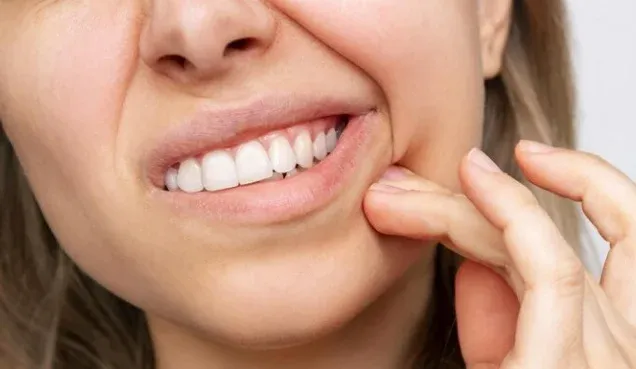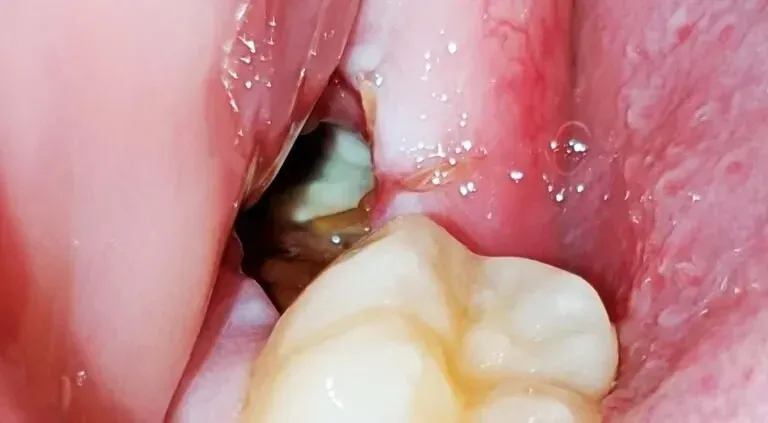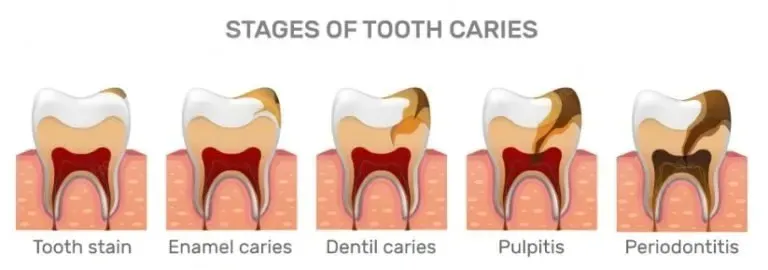Wisdom Tooth Cutting Into Cheek: Expert Solutions & Relief Guide for 2026
Wisdom teeth, also known as third molars, typically emerge during late adolescence or early adulthood. While…
Wisdom teeth, also known as third molars, typically emerge during late adolescence or early adulthood. While some people experience no issues, others face complications when these teeth grow at awkward angles or become impacted. One of the most uncomfortable problems occurs when a wisdom tooth cuts into the inside of your cheek, causing pain, irritation, and potential infection.
If you’re dealing with this issue in 2026, you’re not alone—and more importantly, you have several effective treatment options available. This comprehensive guide will walk you through everything you need to know about wisdom teeth cutting into your cheek, from understanding why it happens to finding immediate relief and long-term solutions.
Why it helps: Creates a protective barrier between your wisdom tooth and cheek tissue, providing immediate relief from cutting and irritation.
Why Does a Wisdom Tooth Cut Into Your Cheek?
The human jaw has evolved to become smaller over thousands of years, yet we still develop the same number of teeth as our ancestors. This evolutionary mismatch means there’s often insufficient space in the mouth to accommodate wisdom teeth properly. When these large molars attempt to erupt, they may grow at unusual angles—sideways, tilted, or only partially emerged—leading them to press directly against the soft tissue of your inner cheek.
Several factors contribute to this problem:
- Limited jaw space: Modern diets require less chewing, resulting in smaller jaw development that cannot accommodate all 32 teeth comfortably
- Impaction: When wisdom teeth become trapped beneath the gum line or against adjacent teeth, they may emerge at problematic angles
- Misalignment: Genetic factors can cause wisdom teeth to develop in positions that naturally push toward the cheek
- Partial eruption: When a wisdom tooth only partially breaks through the gum, sharp edges can continuously irritate cheek tissue
This constant contact creates a cycle of trauma to the delicate cheek lining. Each time you chew, speak, or even close your mouth, the tooth can scrape against the tissue, preventing it from healing properly. If you’re experiencing intermittent wisdom tooth discomfort, the cutting sensation may worsen during certain activities or times of day.
Symptoms and Complications of Wisdom Teeth Cutting Into Cheek
When a wisdom tooth repeatedly cuts or presses into your cheek, you may experience several uncomfortable symptoms:
Immediate Symptoms
- Sharp or constant pain: The affected area may feel tender, especially when eating, talking, or touching the cheek
- Visible sores or ulcers: Repeated trauma creates open wounds on the inner cheek that appear white or red
- Swelling: The cheek tissue becomes inflamed, making it difficult to open your mouth fully or chew comfortably
- Bleeding: Minor bleeding may occur when the tooth punctures the tissue
- Difficulty eating: Chewing becomes painful, and you may accidentally bite the swollen tissue
Potential Complications
If left untreated, a wisdom tooth cutting into your cheek can lead to more serious problems:
- Infection: Open wounds in your mouth are exposed to bacteria, increasing the risk of infection that can spread to surrounding tissues
- Chronic inflammation: Continuous irritation prevents proper healing and can lead to persistent swelling
- Cheek biting habit: Swollen tissue is more likely to be accidentally bitten, creating a painful cycle
- Tooth damage: The wisdom tooth itself may develop cavities or damage from its abnormal position
- Jaw misalignment: Prolonged pressure from a mispositioned wisdom tooth can affect your bite and jaw function
Understanding the early warning signs of wisdom teeth emergence can help you address problems before they become severe. If you’re experiencing extreme discomfort, especially at night, you may also want to explore options for managing severe tooth pain that interferes with sleep.
Immediate Relief: What You Can Do Right Now
While you’re waiting for a dental appointment, several strategies can provide temporary relief from the pain and irritation:
Dental Wax Application
Orthodontic wax is one of the most effective immediate solutions. This soft, pliable wax creates a smooth barrier between the sharp tooth edge and your cheek tissue. Simply dry the tooth surface, tear off a small piece of wax, warm it between your fingers, and press it firmly over the sharp edge. Reapply as needed, especially before meals and bedtime.
Why it helps: Natural saline solution reduces inflammation, cleanses wounds, and promotes healing of irritated cheek tissue without harsh chemicals.
Salt Water Rinses
Rinsing with warm salt water 4-6 times daily helps cleanse the affected area, reduce inflammation, and promote healing. Mix one teaspoon of salt in eight ounces of warm water and gently swish for 30 seconds. This simple remedy is particularly effective after meals to remove food particles that might irritate the wound.
Over-the-Counter Pain Relief
Anti-inflammatory medications like ibuprofen can reduce both pain and swelling. Follow package directions carefully, and consider alternating with acetaminophen for more severe discomfort. Always take these medications with food to protect your stomach.
Cold Compress
Applying a cold compress to the outside of your cheek for 15-20 minutes can numb the area and reduce swelling. Use a cloth barrier between the ice pack and your skin, and repeat every few hours as needed.
Dietary Modifications
Switch to soft, cool foods that require minimal chewing. Yogurt, smoothies, mashed potatoes, and soup are excellent choices. Avoid spicy, acidic, or crunchy foods that might further irritate the damaged tissue. Chew on the opposite side of your mouth when possible.
Professional Treatment Options in 2026
When home remedies aren’t enough, your dentist can offer several professional solutions depending on the severity of your situation:
Tooth Reshaping or Smoothing
For minor cases where a small sharp edge is causing the problem, your dentist may be able to smooth or reshape the tooth using a dental drill. This quick, relatively painless procedure removes the offending portion while preserving the tooth. It’s most effective when the wisdom tooth is otherwise healthy and properly positioned.
Orthodontic Solutions
If the wisdom tooth is salvageable but misaligned, orthodontic treatment might reposition it away from the cheek. However, this approach is less common in 2026, as most dental professionals recommend extraction for problematic wisdom teeth rather than lengthy orthodontic intervention.
Wisdom Tooth Extraction
Extraction remains the most common and definitive solution for wisdom teeth that cut into the cheek. Modern extraction techniques in 2026 have become increasingly sophisticated, with options including:
- Simple extraction: For fully erupted teeth with straightforward root structures
- Surgical extraction: For impacted or partially erupted teeth requiring incision and possibly bone removal
- Laser-assisted extraction: Newer technology that can reduce bleeding and promote faster healing
The procedure is typically performed under local anesthesia, with sedation options available for anxious patients. Recovery usually takes 3-7 days, with most people returning to normal activities within a week. Understanding proper preparation for wisdom tooth removal can help ensure a smoother experience.
Antibiotic Treatment
If infection has developed in the wounded cheek tissue, your dentist will likely prescribe antibiotics before proceeding with extraction. This prevents the infection from spreading during the procedure and promotes better healing afterward.
Why it helps: Topical anesthetic provides targeted numbing relief for cheek sores and irritation caused by wisdom teeth.
Recovery and Aftercare
Whether you’ve had your tooth smoothed or extracted, proper aftercare is essential for optimal healing:
First 24-48 Hours
- Apply ice packs to reduce swelling
- Rest with your head elevated
- Avoid rinsing, spitting, or using straws (which can dislodge blood clots)
- Stick to cold, soft foods
- Take prescribed pain medications as directed
Days 3-7
- Begin gentle salt water rinses after meals
- Gradually introduce slightly firmer foods as comfort allows
- Continue avoiding the extraction site when chewing
- Watch for signs of infection (increased pain, fever, excessive swelling)
Long-Term Healing
Complete healing of the extraction site typically takes 2-4 weeks, though the cheek tissue that was being cut should feel relief within days. Attend all follow-up appointments to ensure proper healing and address any concerns promptly.
Prevention: Can You Avoid This Problem?
While you can’t control how your wisdom teeth grow, regular dental checkups allow your dentist to monitor their development through X-rays. Early detection of potential problems enables proactive treatment before symptoms become severe. Many dentists in 2026 recommend preventive extraction of wisdom teeth in late adolescence if imaging shows they’re likely to cause problems.
Additionally, maintaining excellent oral hygiene around partially erupted wisdom teeth can help prevent infections that might worsen cheek irritation. Use a soft-bristled brush to gently clean around the tooth, and consider an antimicrobial mouthwash to reduce bacteria.
When to Seek Emergency Care
Most cases of wisdom teeth cutting into the cheek can wait for a regular dental appointment, but seek immediate care if you experience:
- Severe, uncontrollable pain
- High fever (over 101°F)
- Difficulty swallowing or breathing
- Excessive bleeding that won’t stop
- Swelling that closes your eye or extends down your neck
- Signs of spreading infection
These symptoms may indicate a serious infection or complication requiring urgent medical attention.
Living With Wisdom Teeth: Is Extraction Always Necessary?
Not everyone needs their wisdom teeth removed. If your wisdom teeth emerge fully, align properly with your other teeth, can be cleaned effectively, and don’t cause pain or damage to surrounding structures, they can remain in place. However, when a wisdom tooth repeatedly cuts into your cheek, it’s demonstrating that it doesn’t have adequate space and is unlikely to improve on its own.
Delaying necessary extraction typically leads to worsening symptoms and can increase the complexity of the eventual procedure. Wisdom teeth become more difficult to extract as you age because the roots continue developing and the bone becomes denser. For these reasons, most dental professionals recommend addressing problematic wisdom teeth sooner rather than later.
Conclusion: Taking Action for Your Comfort and Health
A wisdom tooth cutting into your cheek is more than just an inconvenience—it’s a sign that intervention is needed. While temporary measures like dental wax and salt water rinses can provide relief, consulting with a dental professional is essential for a lasting solution. In 2026, you have access to advanced diagnostic tools and treatment options that make addressing this problem safer and more comfortable than ever before.
Don’t let discomfort persist or worsen. Schedule an evaluation with your dentist to discuss your symptoms and explore the best treatment approach for your specific situation. With proper care, you can quickly return to eating, speaking, and smiling without pain or irritation.
Remember, your oral health significantly impacts your overall wellbeing. Taking prompt action when problems arise protects not only your comfort but also your long-term dental health.







